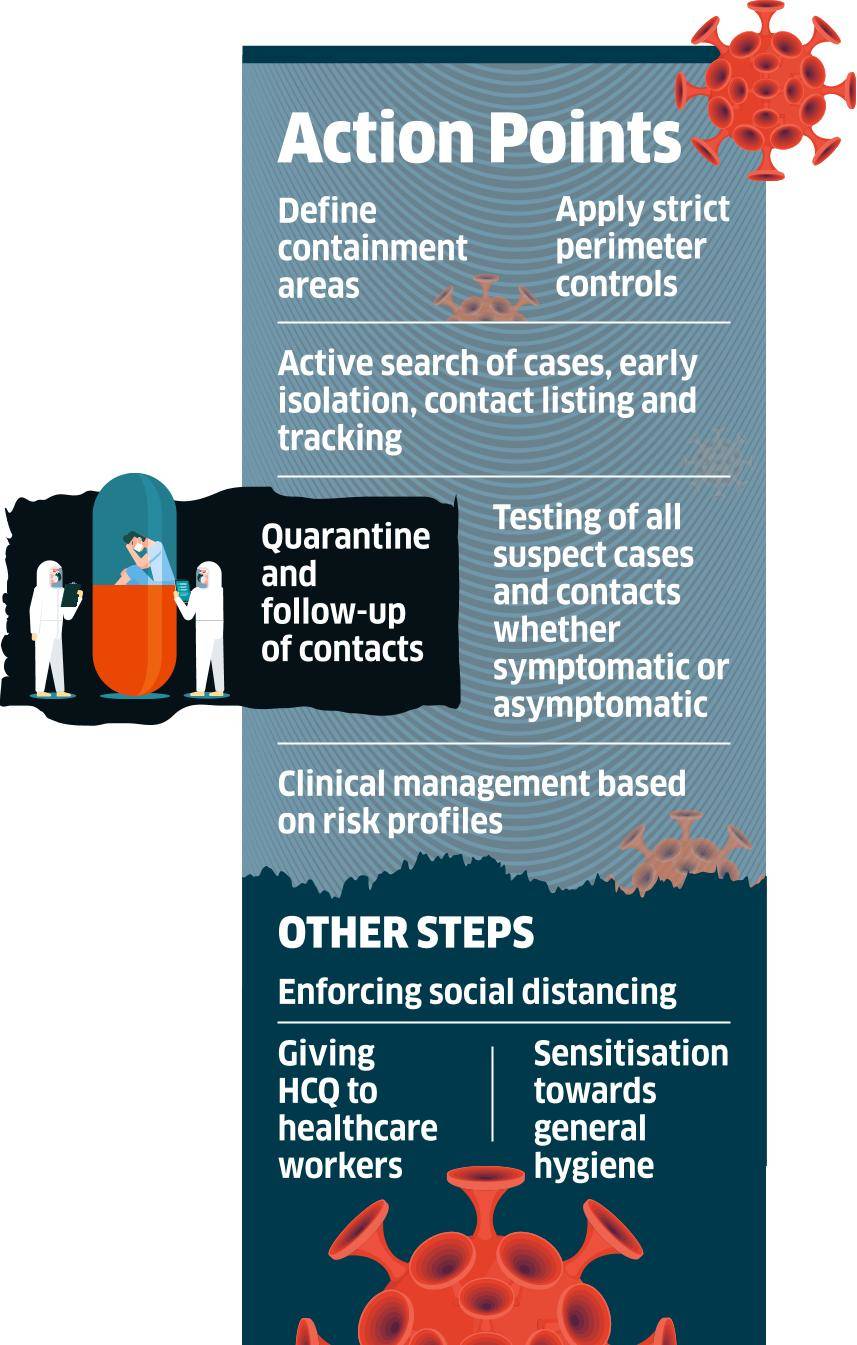The ministry released its revised national Covid-19 containment plan on Friday, with the objective of stopping the chain of transmission to reduce morbidity and mortality. It will come out later with a different plan for mitigation.
The revised plan recommends defining areas of containment and accordingly applying strict perimeter controls. The ministry said there should be active search of cases, early isolation, contact listing and tracking, quarantine and follow-up of contacts, (instead of surveillance of cases recommended earlier).

Testing should be carried out of all suspect cases, symptomatic contacts, asymptomatic direct and high-risk contacts of confirmed cases and of Severe Acute Respiratory Infection cases (SARS). Clinical management should be based on risk profiles.
The recommendations include social distancing measures, administration of hydroxychloroquine in healthcare workers and contacts as per protocol and generation of awareness of hand hygiene, respiratory etiquette and sanitation.
The plan comes when India is in the fourth week of a nationwide lockdown to curb the spread of Covid-19. With over 13,800 cases, 1,766 recoveries and 452 deaths as of Friday evening, the health ministry said the restrictions have worked.
Nineteen states, including all the southern states, added fewer cases over the past six days than the national average, indicating a likely slowdown in the spread of the pandemic. However, there are problem zones, too, with cases increasing in Maharashtra, New Delhi, Madhya Pradesh and Rajasthan.
Maharashtra — and specifically Mumbai — recorded the highest number of cases in the country and counts for the highest fatality rate.
The Brihanmumbai Municipal Corporation (BMC), which is overseeing measures to control the spread of the disease in Mumbai, changed its strategy and has ordered testing of asymptomatic contacts of a Covid-19 positive person only if they develop symptoms. The Indian Council of Medical Research (ICMR) had said such people should be tested between 5 and 14 days of coming into contact with Covid-19 positive people.

The BMC justified its action, saying it was in the interest of saving resources.
Earlier this week, the World Health Organization (WHO) said countries should look at lifting lockdowns only when transmission is controlled, additional capacity in the health system is in place to trace, treat and isolate patients. It had also said that risks of outbreaks are minimised in special settings like nursing homes, preventive measures are in place like schools and workplaces, importation risks can be managed and communities are engaged to adjust to the new norm.
“Some countries and communities have endured several weeks of social and economic restrictions. Some countries are considering when they can lift these restrictions. Others are considering whether and when to introduce them. These decisions should be based on human health and guided by how the virus behaves,” said Tedros Adhanom Ghebreyesus, Director General of WHO.







